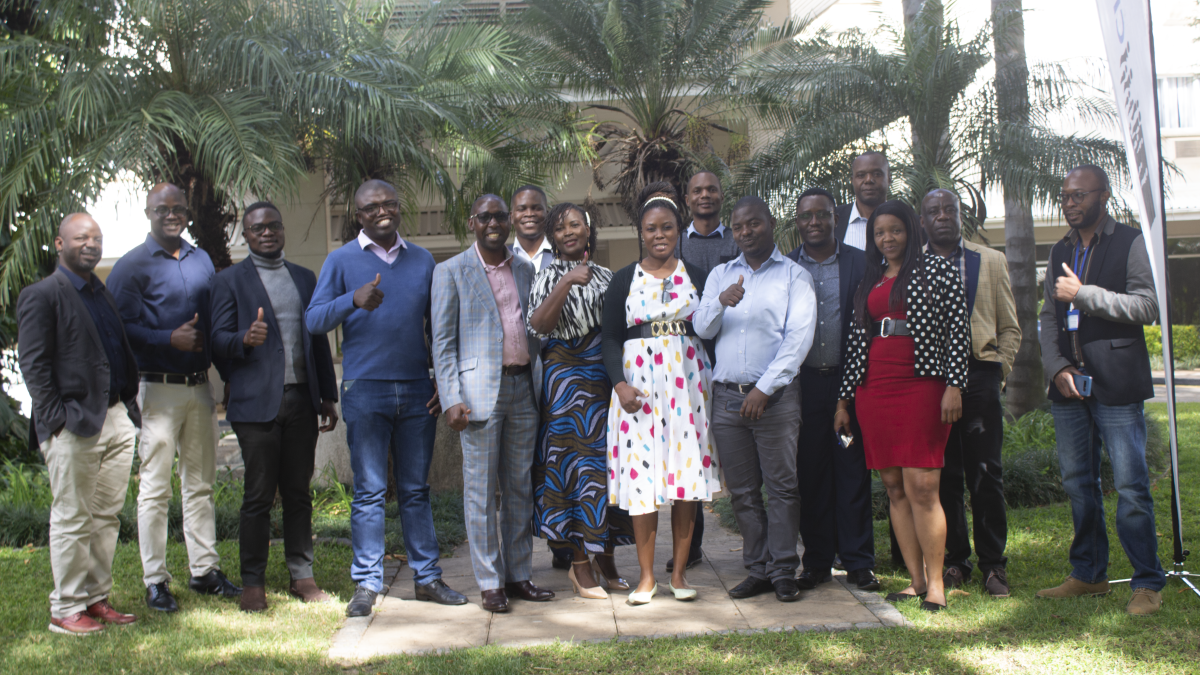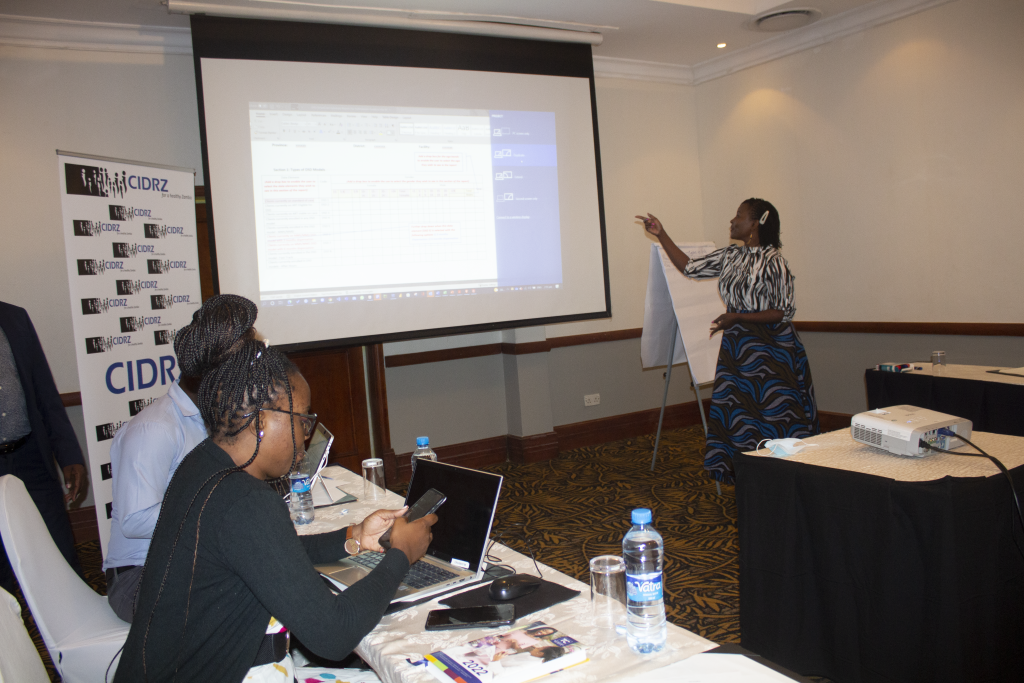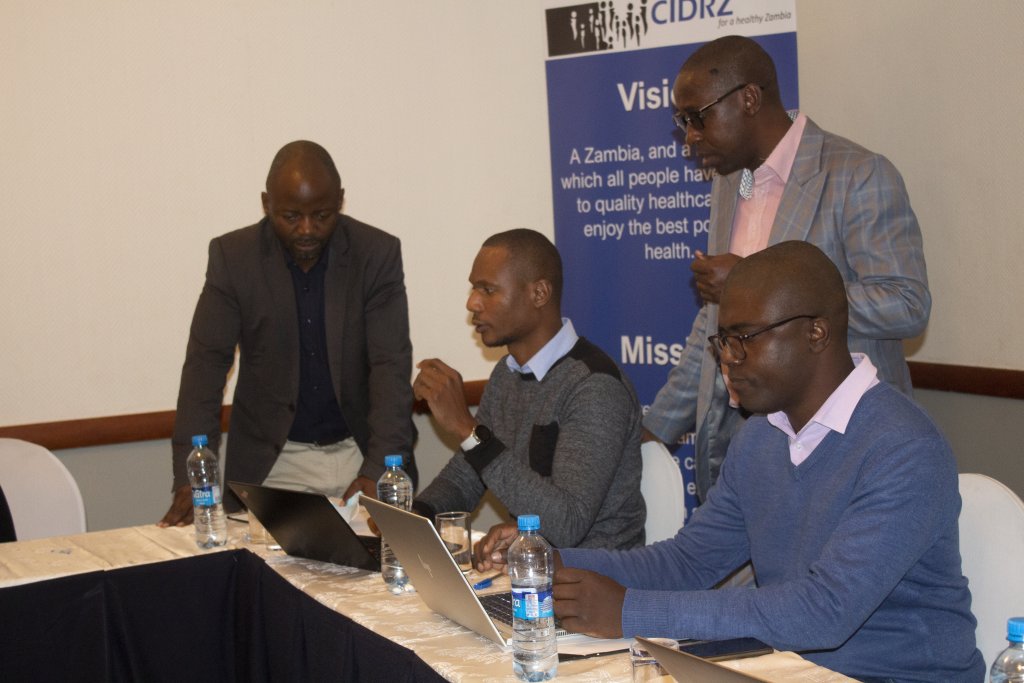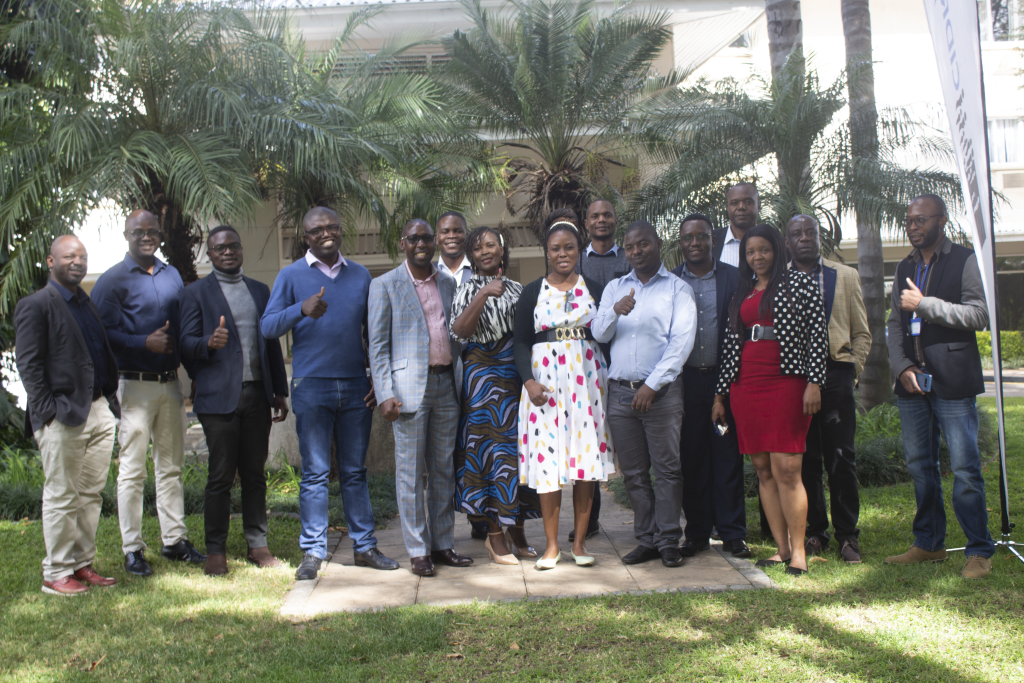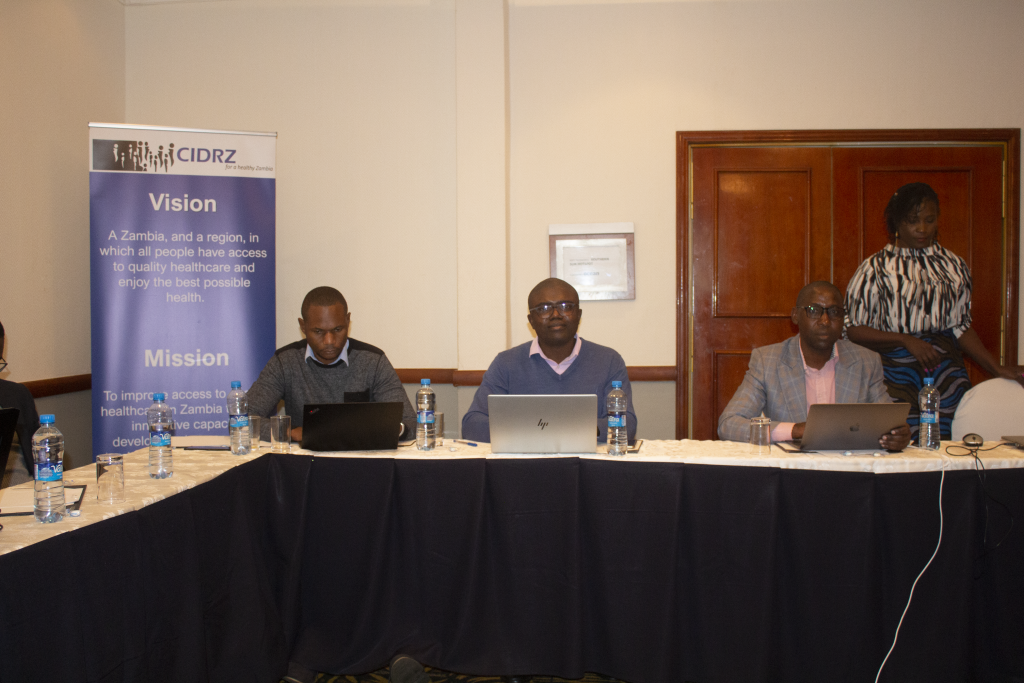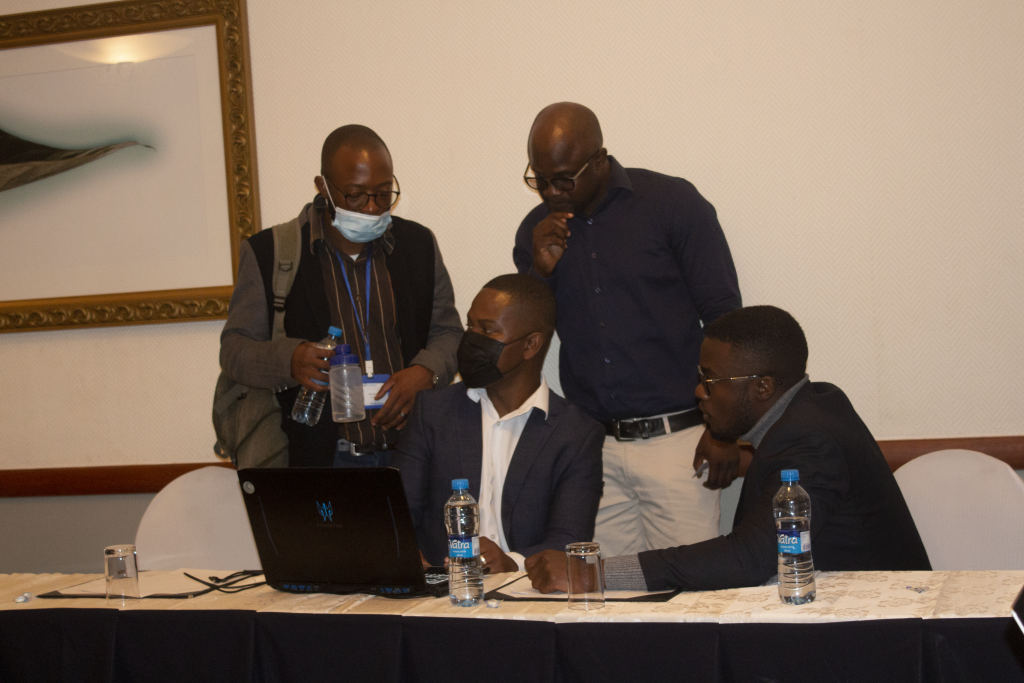- HOME
- ABOUT
- AREA OF FOCUS
- Research
- Enteric diseases & HIV vaccine Research unit
- HIV prevention, care & treatment
- Implementation Science
- Paediatric prevention care & treatment
- Vulnerable Children & Adolescent Health
- Tuberculosis
- Prison’s Health
- Social & Behavioral studies
- New Born & Women’s health
- Primary care and health systems strengthening
- Mental Health
- Hepatitis
- SUPPORT UNITS
- MEDIA
- News
- Annual reports
- Quarterly Newsletters
- Vol.24 CIDRZ Newsletter Q2 FY 2024
- Vol.23 CIDRZ Newsletter Q1 FY 2024
- Vol.22 CIDRZ Newsletter Q4 FY 2023
- Vol.21 CIDRZ Newsletter Q3 FY 2023
- Vol.20 CIDRZ Newsletter Q2 FY 2023
- 1st Quarter Newsletter FY2022/2023
- 4th Quarter Newsletter FY2021/2022
- 3rd Quarter Newsletter FY 2021/2022
- 2nd Quarter – FY 2021-2022
- 1st Quarter 2021-2022
- Research Abstracts/ Scientific Posters
- Research Presentations
- Gallery
- Videos
- TRAINING
- TOOLKITS
- Taskpen Toolkit
- Human Infection Studies (HIS)
- Menstrual Hygiene Management (MHM)
- Better Information for Health in Zambia Toolkit – 2017
- CommART Toolkit
- Operation Triple Zero Plus – HIV Literacy Package for Adolescents
- TASKPEN CLINICAL GUIDELINES :Protocols for the Integrated Management of Cardiometabolic conditions in Adult PLHIV
- JOBS
CIDRZ partners with the Ministry of Health to develop Differentiated Service Delivery (DSD) reports using the national electronic medical records (SmartCare)

Sixty-Six (66) Trained in Safe and Ethical Index Testing (SEIT), GBV LIVES, Social Network Strategies (SNS) and HIV Self-Testing.
June 2, 2022
ZTA TRAINS CIDRZ SUPPORTED GOVERNMENT HEALTH CARE WORKERS IN ‘THERAPEUTIC ART’
June 6, 2022CIDRZ partners with the Ministry of Health to develop Differentiated Service Delivery (DSD) reports using the national electronic medical records (SmartCare)

With funding from the Global Fund Differentiated Service Delivery Strategic Initiative (DSD SI), CIDRZ supported the Ministry of Health (MOH) DSD taskforce to host a stakeholder engagement meeting aimed at developing DSD summary reports that can be generated in SmartCare Legacy.
The meeting was attended by 15 participants drawn from the Catholic Relief Services (CRS), Institute of Health Management (IHM), Clinton Health Access Initiative (CHAI), MOH and CIDRZ. The participants included SmartCare developers, strategic information officers and program officers.
What you should know about SmartCare

SmartCare is an MOH designated, national standard for Electronic Health Record which is a comprehensive tool in Zambia that is used to collect, store, report on the aggregate data from the large patient population and provide health data reports in a timely manner at any level at facility, district, provincial and national level. It is a patient-based information system that provides uniquely identifiable data aimed at accurately forming health decisions and thereby impacting the lives of Zambia people.
Using DSD summary reports for quality improvement and efficient reporting
Speaking at the meeting, Acting National DSD Coordinator Dr Khozya Zyambo noted that DSD Monitoring and Evaluation (M&E) has lagged over the years, hence the meeting was crucial to the DSD Taskforce.
“I have come here to encourage you on the work being done and hope that at the end of the meeting, we will generate something to help us score in the M&E Area of DSD”, Said Dr. Zyambo.
Meanwhile, the CHAI Senior Research Associate and the DSD M&E subcommittee chairperson, Mr Bevis Phiri, said that as volumes of patients who are on HIV treatment have been growing, due to Test and Treat policy and improved viral suppression, an Electronic Medical Record (SmartCare) was developed to easily capture patient records.
He explained that, in as much as enough information is being recorded on Recipient of Care (RoC) who are on DSD, SmartCare lacks an automated report to generate a comprehensive digital snapshot of current and treatment history of patients on DSD models. A SmartCare report/register would result in making data available for efficient reporting, quality improvement and health care providers. Hence, the DSD M&E subcommittee engaged MOH ICT, IHM and CIDRZ to support the process of making the data captured in SmartCare on DSD readily available.
“I am happy to see the progress that has been made so far from this workshop on integrating DSD registers and reports into Electronic Health Record (EHR). The team of developers displayed an unwavering commitment to make this happen throughout the workshop,” Said Mr Phiri.
Mr Phiri noted that continuous system improvements to SmartCare are needed, with regular assessments of its’s effectiveness. This is important to achieve an effective standardized SmartCare system for monitoring and evaluation.
Through the existing Electronic Health Record (EHR) DSD data is accessible within the National data warehouse and summary information can be generated at any level. Some of the priority DSD models included in SmartCare are ART models for stable RoC, the HIV Testing Services (HTS) models, Men’s Clinic and Community Post models.
About the Differentiated Service Delivery implementation in Zambia
Zambia has been part of the HIV Coverage, Quality and Impact Network (CQUIN), since 2017 and is considered one of the mature countries among the 21 member states (see). In the same year, Differentiated Service delivery (DSD) was first integrated to the Zambia Consolidated Guidelines for the HIV Treatment and Prevention.
Zambia, through the National DSD taskforce has recorded several achievements that have made DSD become a fundamental service delivery option within the National HIV program. These achievements include but not limited to:
- Development of the National DSD framework,
- Strong DSD Coordination – all 2,522 ART facilities in the country with total number of 1,172, 279 recipients of care ART had enrolled at least 457,816 (39%) of eligible recipients of care into less-intensive model by end of June 2021 (October 2021 CQUIN DSD Dashboard staging), growing model diversity (facility-based individual models, facility-based group models, community-based individual models and community-based group model), increasing coverage for recipients of care and geographic areas of the country.
The Zambia National DSD implementation framework of 2022 adopted DSD definition as a public health approach that is responding to the increased diversity of needs of People Living with HIV (PLHIV) and enabling access to treatment and care (WHO, 2021). This is an approach designed to streamline care along the HIV cascade in ways that are intended to better serve the needs of PLHIV, reduce unnecessary burdens/costs on the health care system, and improve client outcomes.
With this approach, Recipients of Care (RoC) receive appropriate care in the environment best suited for their needs and those with complex needs receive intensified care. This is done using a simplified and standardized ART that supports decentralization of care, task sharing and shifting, community delivery and efficient procurement and supply management (WHO, 2021). The principles of differentiated service delivery can be applied to prevention, testing, linkage to care, ART initiation, follow-up, integration of HIV care with co-infections and comorbidities.
A Glance at the Differentiated Service Delivery Strategic Initiative (DSD SI)
DSD SI is funded by the Global Fund to invest in technical assistance to incentivize increased program quality and efficiency along the HIV testing treatment and advanced disease cascade, through promotion of best-practices and acceleration of country grant implementation. The initiative leverages Technical Assistance (TA) for the expansion of differentiated testing and treatment models, advanced HIV disease management and virtual interventions. The Zambian Government which is part of the DSD SI priority countries has designed a workplan that complements country efforts to improve men’s access and retention in HIV services through the implementation of this TA areas. The Centre for Infectious Disease Research in Zambia (CIDRZ) and ICAP provide local and international technical assistance, respectively to the initiative.
Improving Monitoring and Evaluation for DSD is a priority in the National DSD implementation plan. Therefore, became a key part of DSD SI focus areas for CIDRZ’s technical assistance, which included convening this key stakeholder meeting on generating DSD summary reports for efficient reporting and DSD quality improvement.

